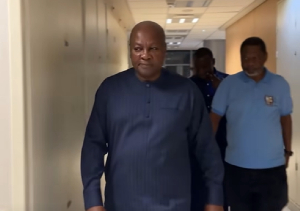Signs are emerging that government’s fiscal deficit outcome for 2020 will exceed the revised target of 11.4 percent.
The first signs of this were revealed within the data released by the Bank of Ghana’s most recent Monetary Policy Committee report, released in late September which showed that by the start of August, the deficit had risen to 7.4 percent of Gross Domestic Product, which was marginally higher than the 7.2 percent target set for that time.
However this trend seems to be further confirmed by the fact that over the past three consecutive weeks, government has been accepting bids for its treasury securities issuances which are above the planned amounts as contained in its public debt issuance calendar.
Last week, this trend continued with the Bank of Ghana selling short term treasury instruments with tenors ranging from 91 days to one year, worth GH¢793.9 million.
The target for last week’s auction was GH¢733.0 million. This was similar to the previous week’s situation where government sold treasury securities worth GH¢919 million, rather than its GH¢876 million target.
Economists are concluding that government is deliberately accepting more than it is asking for in order to meet the wider than planned fiscal deficit.
To be sure this was widely expected, being that this is an election year. Although the President Nana Akufo-Addo administration has shown much greater fiscal restraint than its predecessor, the opportunity thrown up by the arrival of the COVID 19 pandemic in Ghana has simply been too good to pass up.
With the five percent fiscal deficit cap imposed by the Fiscal Responsibility Act now replaced by a necessary double digit target government can now afford to open the public spending taps ahead of the polls, since even a one percent of GDP increase in the deficit would be considered small when the overrun is measured in proportional terms.
Besides the need to carry out social interventions to ameliorate the effects of COVID 19 on the poor and vunerable, as well as the need for further economic stimulus spending for small businesses, provide good reason foe extra-budgetary spending.
Importantly however, higher than planned public expenditure is not pushing interest rates upwards.
Here the Bank of Ghana’s deliberate effort to use monetary policy to lower short term rates – which influence the cost of borrowing by corporate Ghana – and increase longer term rates – which influence the attractiveness of medium to long term government securities to institutional investors – is paying off. Last week the yield on the 91-day treasury bill remained unchanged but the interest rate on the 182-day bill fell by 0.03 percent.
Actually, short term rates have been falling since April, following cuts in both the Monetary Policy Rate and the Ghana Reference Rate.
On a year on year basis, the 91-day treasury bill rate fell from 14.7 percent to 14.0 percent over the 12 months up to August 2020. Similarly, the 182-day treasury bill rate declined to 14.1 percent from 15.2 percent over the same period.
Business News of Thursday, 22 October 2020
Source: goldstreetbusiness.com













